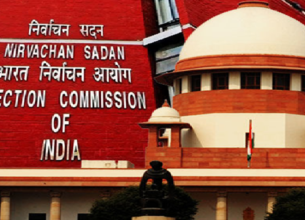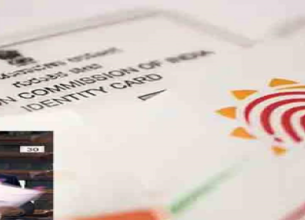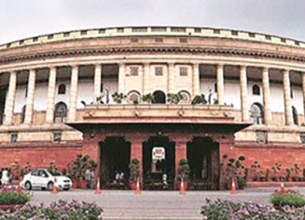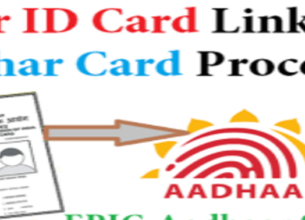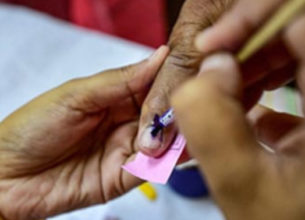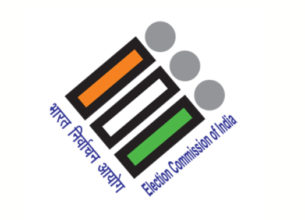Regulating the Election funding system
Why in News?
- Elections are to democracy what financial markets are to the economy. The absence of an omnibus law to regulate elections and political parties in India is a legislative gap waiting to be filled.
Significance of political parties in democracy:
- A political party is an organized group of citizens who hold common views on governance and act as a political unit that seeks to obtain control of government with a view to further the agenda and policy they profess.
- Political parties maintain a continuous connection between the people and those who represent them either in government or in the opposition.
- Political parties in India are extra-constitutional, but they are the breathing air of the political system.
Current procedure of recognizing and regulating the political parties In India
- Registration of political parties: The Representation of the People Act 1951 was amended in 1988 to add a new section IVA on “Registration of political parties” by which the Election Commission of India (ECI) exercises its mandate for superintendence, direction, and control of elections under Article 324 of the Constitution of India.
- Recognition as national or state political party: Association of citizens can apply to the ECI to be registered by submitting its Memorandum of Association and swearing allegiance to the Constitution. It requires fulfilment of performance criteria, including a minimum share of the electoral votes cast in the last election and the number of seats won to become a recognized national or a state party.
- A regulatory gap in Municipal political parties: Municipalities became the third level of government, three decades ago in 1992, through the 74th constitutional amendment. But a parallel recognition for political parties operating only at the municipal level is yet to be conceptualized.
Mechanism of Election funding:
- Encouraging private corporates and individual investment: Indian government does not directly fund election campaigns of parties or independents. However, it has made political parties exempt from income tax, to encourage private corporate and individual investment in building political parties.
- Limit on election campaign expenditure: The ECI set upper-end limits (January 2022) for election campaign expenditure in parliamentary seats at INR9.5 million and INR4 million in state legislature seats.
- Electoral bonds to end large cash payments in election finance.
Scheme of electoral bonds:
- A publicly owned commercial bank, with the largest network of branches is the only designated vendor. Bonds remain valid for 15 days within which they can be encased through the bank account of the selected political party.
- The purchaser-donor enjoys tax credits on the purchased bonds as in any other donation to charities.
- Association of democratic records: The idea was to facilitate large donors, preferring anonymity whilst donating funds for elections, with an alternative to cash payments.
What is the cause of concerns over the electoral bonds?
- Anonymity of the electoral bonds: The anonymity afforded by the bonds is primarily versus citizens.
- Bond vendor is a government owned bank: SBI is a government-owned bank, which can be persuaded by the government into sharing data informally regarding the bond purchases and encashments by political parties
What can be done to ensure the security of the donor?
- Bond Digitization: Bonds should be digitized and the privacy of the transfer should be protected through encryption.
- Authorized access: Redemption is through banking the audit trail of the donor and the recipient would exist for authorized access.
- Enhancing transparency with ECI: Transparency should be enhanced whilst protecting anonymity by authorizing ECI to collect and publish de-personalized information.
- Personal data should be accessed with the specific orders only: Access for security and criminal investigation agencies to the personal data should come via a specific order of the ECI allowing such privileged access.
What are the suggestions for better governance of the political parties?
- Strict Supervision of political parties: Poor Intra-party governance is concentrated in the Registered Unrecognize Political Parties (RUPP). Most are in breach of their undertaking to fight an election within five years and remain active thereafter.
- Strengthen the Regulatory compliance: The benefit of income tax exemption should only be available after registered parties demonstrate a five-year record of compliance with the regulations.
- Enforce inner-party democracy and avoiding conflict of interest: Making party members occupying party positions, ineligible for holding executive positions in government. This is necessary to create a complete segregation of functions within the ruling party and the government
- Empower ECI to regulate political parties: The misuse of the fiscal privileges afforded to political parties can be minimized through targeted regulatory tweaks, within the existing construct of private financing and the inner functioning of parties improved through targeted regulation.
Conclusion:
- “Secrecy is a darkness where corruption gets nurtured”. Funding to the political parties need to be transparent. Transparent funding will pave the way for level playing field for all the political parties.



